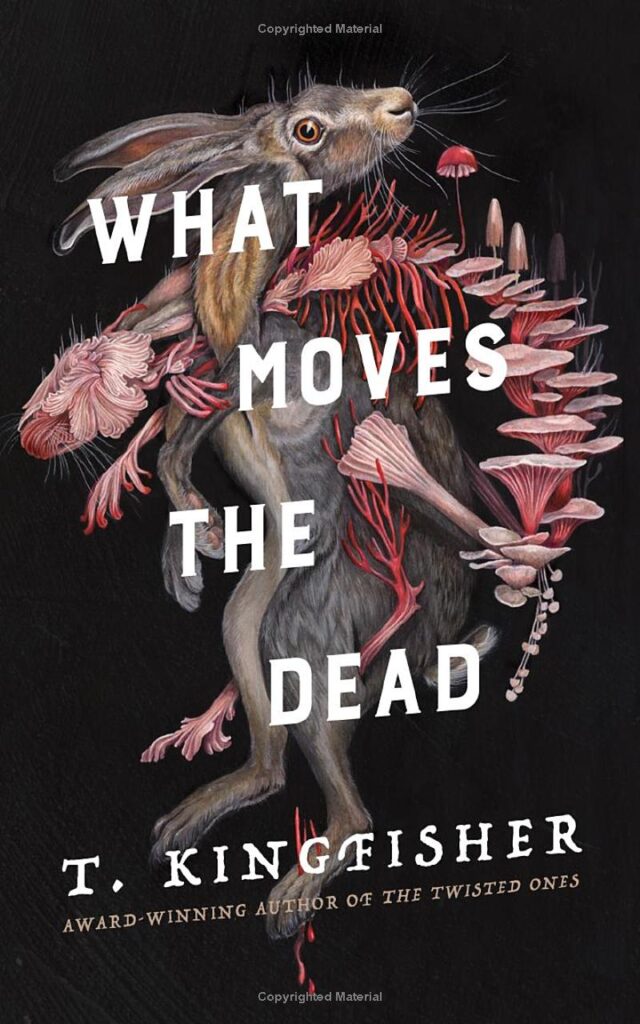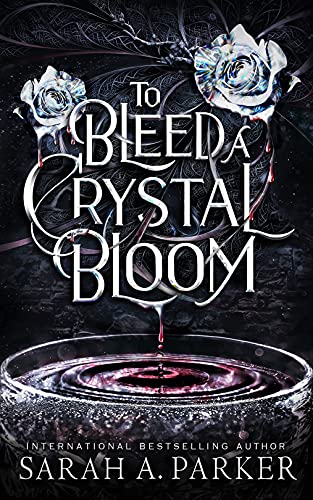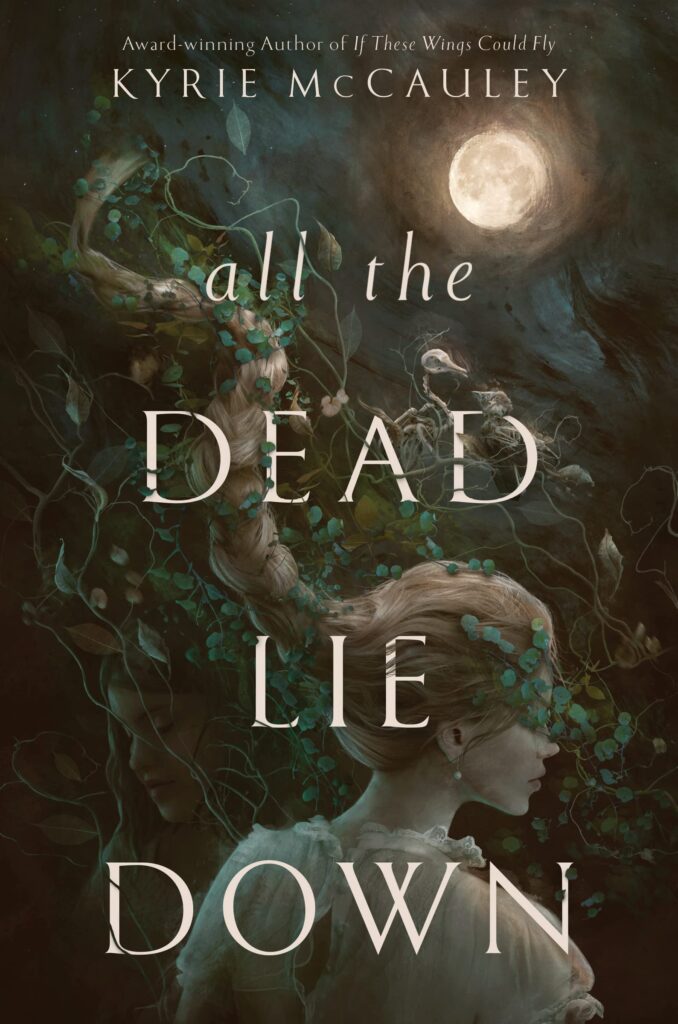
From the award-winning author of The Twisted Ones comes a gripping and atmospheric retelling of Edgar Allan Poe’s classic “The Fall of the House of Usher.”
When Alex Easton, a retired soldier, receives word that their childhood friend Madeline Usher is dying, they race to the ancestral home of the Ushers in the remote countryside of Ruravia.
What they find there is a nightmare of fungal growths and possessed wildlife, surrounding a dark, pulsing lake. Madeline sleepwalks and speaks in strange voices at night, and her brother Roderick is consumed with a mysterious malady of the nerves.
Aided by a redoubtable British mycologist and a baffled American doctor, Alex must unravel the secret of the House of Usher before it consumes them all.
Introduction
I can’t even begin to express my excitement when I picked up this book. It’s a rarity for me to read reviews before diving into a novel, but this time I did, and they only heightened my anticipation. With its stunning cover, compelling synopsis, and a nomination for Best Horror in the 2022 Goodreads Awards, I couldn’t help but wonder, what could possibly go wrong?
“The dead don’t walk. Except, sometimes, when they do.”
Overview
What Moves the Dead is a retelling of Edgar Allan Poe’s short story, The Fall of the House of Usher, where T. Kingfisher preserves the essence of the original tale while infusing it with her own eerie and uncanny twist. For those interested, it remains remarkably faithful to the source material, deviating only in terms of the story’s unique twist and the inclusion of a new-age, non-binary protagonist—an applaudable nod to Kingfisher for representation.
For those unfamiliar with the story, it follows an old friend who receives a plea for help from the Ushers. Upon arriving, they discover the grand manor and its inhabitants in a state of severe decay. A series of ghastly events unfolds, leading to a climactic escape as the House of Usher collapses. While there’s more to the story than this, it sets the foundation for What Moves the Dead.
“Then she smiled and it was terrible. Madeline’s lips pulled up at the corners in a terrible parody of good humor, her mouth stretching painfully wide, her jaw dropped so far that it looked almost like a scream. Above that awful grin, her eyes were as flat and dead as stones. I do not delude”
Thoughts
In the realm of retellings, there are certain criteria that must be met for it to be considered successful. T. Kingfisher undeniably excels in this regard. They masterfully maintain the essence of the source material while adding their unique twist. The narrative pays homage to Poe’s work with subtle nods while remaining true to the original. This fusion creates something that is unmistakably Poe yet distinctly Kingfisher. However, this wasn’t where the issue lay for me; it was the pacing and timing.
This novella marked my first encounter with T. Kingfisher’s work, and I must admit it might be my last. Despite its brevity and my longstanding interest in the subject matter (which I won’t spoil), I found myself struggling due to the pacing. I’ve since realized that Kingfisher is known for their slow, lyrical style, which, regrettably, I didn’t research beforehand.
I firmly believe that the timing of when you read a book can significantly impact your perception of it. Personal circumstances and your frame of mind can affect your reading experience. In my case, I don’t think the timing aligned well with this particular book. I genuinely believe I might have enjoyed it more had I read it at a different time.
Conclusion
Before I conclude, I’d like to mention that I experienced this as an audiobook, and I didn’t use my own voice to read it. If I ever decide to give this book another chance, I’ll certainly opt for reading it with my own voice, as I believe the narrator contributed to my mixed experience. Additionally, I acknowledge that navigating YA Horror can be quite challenging, and when not executed correctly, it can come across as stale and unoriginal. This is especially true for a story like The House of Usher, which is already well-known.
“Look, if you don’t make a fool of yourself over animals, at least in private, you aren’t to be trusted.”
Trigger Warnings
Content warnings in the realm of fantasy literature often tread a curious path, yet I find it necessary to illuminate aspects that could serve as potential triggers for fellow readers. Be advised that these warnings should be taken with care as I am not a licensed therapist and in no way could I identify everything. The following is what stuck out to me and other readers. The following might contain spoilers.
https://booktriggerwarnings.com/What_Moves_the_Dead_by_T._Kingfisher


